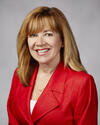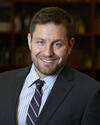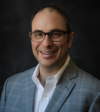In The News: College of Liberal Arts
With the November election in mind, one question is particularly salient: What are Donald Trump's plans for the Affordable Care Act (ACA)? The fate of this central pillar of U.S. health policy is of interest to millions of Americans. Although Trump tried several times to weaken the ACA during his first term, he has now promised to make the ACA "much better, stronger and far less expensive" if he wins again.
As we close in on the November election, there’s a lot of talk about what exactly Donald Trump’s policy plans are. One area that’s especially interesting to millions of Americans is the future of the Affordable Care Act (ACA), a cornerstone of healthcare policy in the United States.
Our brain measures time by counting experiences, not by following a strict chronological order. A new study by a team of UNLV researchers suggests that there’s a lot of truth to the trope “time flies when you’re having fun.” In their study, recently published in the journal Current Biology, the researchers discovered that our perception of time is based on the number of experiences we have, not on an internal clock. Additionally, they found that increasing speed or output during an activity appears to affect how our brains perceive time.
Our brain measures time by counting experiences, not by following a strict chronological order. A new study by a team of UNLV researchers suggests there's a lot of truth in the adage that "time flies when you're having fun."
Have you ever heard the old saying that time flies when you're having fun? A new study by a team of UNLV researchers suggests there's a lot of truth to that saying. Many people think their brains are intrinsically synchronized with the clocks on their wrists or cell phones that count time in very specific, minute-by-minute increments. But the study , published in Cell Press's peer-reviewed journal Current Biology , showed that our brains don't work that way.

When news broke that Francine Pascal, creator of the “Sweet Valley High” universe, died last weekend at the age of 92, appreciations began rolling across the internet like a certain red Spider through a high school parking lot. “Wildly popular,” “staple of my girlhood,” “G.O.A.T. of publishing,” readers proclaimed. Nostalgic and bereaved, I drove to the library to check out a few, only to discover they had been removed from the catalog.
With Professor David G. Schwartz, we take a historical excursus on the “birth” of Nevada as the main point of reference in the world for gambling.
When President John F. Kennedy addressed crowds of well-wishers in Ireland during his June 1963 visit to the country, he employed a rhetorical device that served both him and his audiences well. “I would like to ask how many people here have relatives in the United States,” Kennedy would grin from behind the lectern. “Perhaps they could hold up their hands?”

Republicans smell blood in the water in Nevada’s 4th Congressional District, and they’re pouring resources into the race in an effort to pick up a seat that’s been held by a Democrat for five of the past six election cycles.

About a mile down the rocky Pine Creek Canyon Trail that begins near the end of the Red Rock Canyon scenic loop, there’s a tranquil spot where the leaves of gnarled apple trees rustle in the breeze, birds twitter and a meadow is surrounded by towering mountains.
Every year, the U.S. Open Tennis Championships sparks a frenzy that goes beyond its sport. We tune into matches, watch the stands closely, and get inspired to sign up for tennis lessons—even if we've never swung a racket before. And it's not just us.
It's no exaggeration to say the control of the U.S. Senate — and the White House — could be decided by "the biggest little city in the world." Centered in Truckee River Valley, the desert town of Reno, Nevada, also sits at the center of the national debate over inflation, immigration and federal abortion bans.



